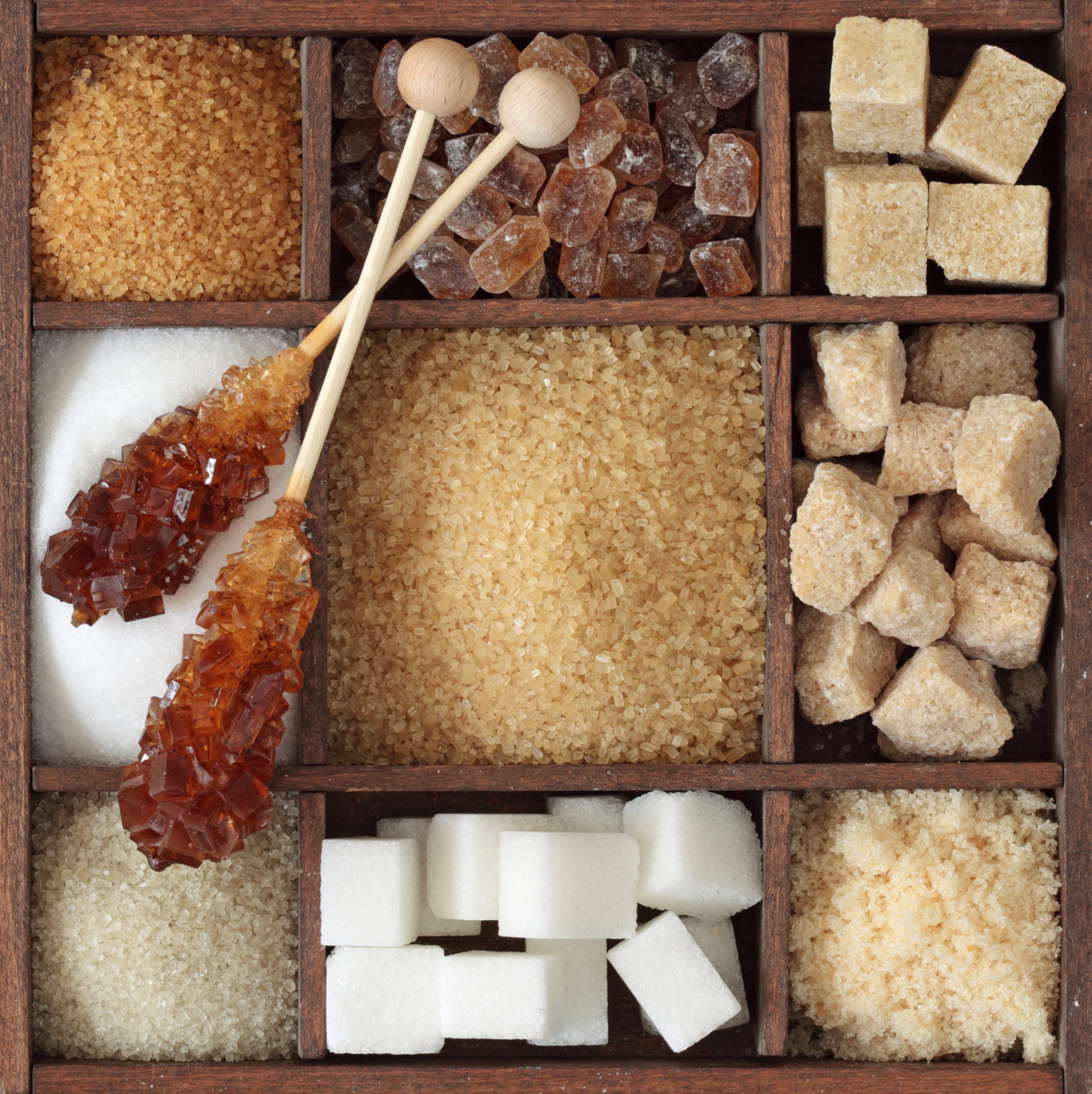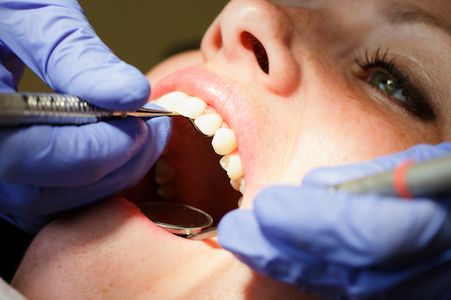
To maintain good dental health, you need to monitor how much, how often, and what kind of foods you’re consuming. Eating some foods, especially sugar, can badly impact your teeth and gums even after you’ve digested it. Sugar may look very tempting and harmless but know that it’s a slow poison; it not only impacts your oral health but also causes other health issues such as skin problems, diabetes, weight gain, and more. In this article, we will discuss how this ridiculously sweet food compound degrades your oral health and what can you do to prevent this.
But before you continue reading, know that the key to treating a sugar-ravaged smile is to see a skilled dentist. At Smile Design Dental, we offer safe, effective preventive exams and dental cleanings at each of our locations. Call today to schedule your family’s appointments!
How Does Sugar Affect Your Dental Health?
Your mouth is filled with bacteria – some are good bacteria, while others are harmful. The bad bacteria feed on the sugar you eat and produce acids that harm your tooth enamel, which is the protective outer layer of your teeth. The acids formed by bacteria result in cavities and might also cause holes. If left untreated, cavities can degrade your tooth further as the infection penetrates to the deeper layers past the enamel. This can lead to severe toothache and tooth loss as well.
The good thing is, your mouth is continuously reversing the damage of harmful acids by a demineralization process. So, what you can do is, limit your sugar intake and let your mouth do its job of maintaining your oral health.
Many people in the name of “sugar – cutoff” replace their daily sugar with some other forms of natural and artificial sugar such as honey, maple syrup, molasses, jaggery, etc. But make one thing very clear, sugar in any form is DANGEROUS!
Also, don’t let the manufacturers fool you with their incognito sugars. Some brands use smart marketing tricks by labeling their products as “sugar-free” just to fool the customers. Instead of white refined sugar, they use the replacements like :
- Corn Syrup
- Honey
- Carob Powder
- Fructose
- Maltose
- Cane juice
- Dextrose
- Fruit concentrate
And the list goes on…
The reality of these incognito sugars is, they are equally and even more harmful than plain white sugar.
How Does Sugar Cause Cavities?

Tooth decay can occur to anyone regardless of their age. As we already discussed, decay occurs when the bad bacteria that feed on the sugar you’re consuming, attacks your teeth.
Generally, most people know that eating too much sugar results in tooth decay and cavities, but not as many know what actually happens. You’ll be amazed to know that a whole series of events takes place inside your mouth after you enjoy your favorite sugary treat.
When you eat something sweet, the sugar immediately starts interacting with the bad bacteria which in turn produces acid. This acid then attacks your shiny enamel and degrades it resulting in tooth holes and cavities. When it happens, tooth decay can lead to tooth abscesses which may cause enormous pain and you may have to get the affected tooth extracted.
This is the reason why you should cut off your sugar intake. Here is how you can do that :
How To Control Your Sugar Intake
There are a number of things you can do to reduce the bad impact of sugar on your dental health. But the easiest way to start with is limiting your sugar intake.
The very first step is to consume your food mindfully. Start with understanding and learning about the recommended daily sugar intake. According to studies, your daily sugar consumption should be only 10% of your total calorie intake. So, instead of having 100 grams of sugar daily, like how an individual ingest on an average, limit it to only 48 grams.
Replace Your “So-Called” Healthy Snacks
Snacks are the main source of sugar in your daily food consumption. There are many snacks in the market that claim to be healthy and “sugar-free”, they mostly contain large amounts of sugars and other artificial sweeteners. By knowing about these fake foods, you can cut down your sugar intake.
Here are the top five snacks that can do more harm than good :
1. Fruit Smoothies
A regular 16-ounce smoothie serving that you buy from your local store contains around 80 grams of sugar. So, instead of buying smoothies from stores, consider making one at your home. You can blend together some frozen fruits, non-fat milk, a drop or two of vanilla extract, to get a creamy and delicious smoothie.
2. Yogurt
A cup of store-bought flavored yogurt can add roughly 13 grams of sugar to your diet. And if you’re one of those people who like eating their yogurt with a half cup of granola, you’re adding another 6 grams of sugar. So, avoid doing this and use plain Greek yogurt mixed with some nuts, seeds and fruit in your breakfast.
3. Flavored Oatmeal
We know how tempting it is to grab a pack of flavored oats and prepare a quick breakfast on a hectic morning. Perhaps you’ll top it with some brown sugar or maple syrup which will add another 14 grams of sugar. So, instead of having instant packs, prefer cooking your oats with plain water and add a pinch of cinnamon and a cup of apples to get a perfect sweetness.
4. Salad Dressing
Salad dressings can also add to your sugar consumption. Dressings like French, ranch, and raspberry vinaigrette have around 4 grams of sugar per two tablespoons. So, instead of using such dressings, drizzle some olive oil and lime juice to enhance the taste of your fresh salad.
5. Fruit Juices
Fruit juices are yummy and a quick way to quench your thirst and even reduces hunger pangs sometimes. While you might be thinking that you’re gulping a healthy beverage, in reality, you could be having nothing but liquid sugar in the form of store-bought juice. Fruit juices you buy at stores are loaded with sugar. So, instead of grabbing a glass of juice, drink water to quench your thirst.
How To Reduce The Risk Of Sugar Impacting Your Oral Health
You need not cut-off sugar completely to maintain good oral hygiene. If you follow a proper dental care routine, you can still enjoy your desserts while also maintaining healthy teeth and gums. Here are the 7 dental care tips you should follow:
1. Brush Properly

You should ideally brush after every meal to get rid of food residue from your teeth. But if you can’t manage this because of your busy schedule, we recommend brushing your teeth twice a day – morning and before bed.
2. Use Mouthwash
Mouthwash not only prevents the buildup of plaque bacteria, but also keeps your mouth fresh and free from bad odor.
3. Chew Sugar-Free Chewing Gum
Instead of eating a lot of chocolates and candies, try to eat sugar-free chewing gum after your meals. This will control your sugar craving and also helps in cleaning your teeth.
4. Eat Sugary Foods With Your Meals
The best time to enjoy the sweets is along with your meals. Instead of having desserts as snacks, eat one limited portion right before your main meal. This is because the saliva that generates after your meal will clean away all the sugars from your teeth. Further, avoid drinking sodas and other sugary drinks with your meals.
5. Snack After Your Meals
If you’re busy and can’t brush your teeth after every meal, try chewing something like a cheese cube, coconut, or apple. This will significantly help in neutralizing the acid which would otherwise attack your enamel.
6. Monitor Your Diet
Not just the sugar, an imbalanced diet can also give rise to tooth decay. Carbs and starches are nothing but sugars. So, every time you eat a lot of rice, potato, and other carb-rich food, you’re inviting the bad bacteria to produce acids and attack your teeth and gums. You should be mindful of what you’re eating. Keep your diet well-balanced and try to eat natural and non-processed food as far as possible.
7. Don’t Ignore The Warning Signs
Below are the signs that show you’re eating too much sugar and you should stop right now:
- You’re feeling tired and lethargic
- You’re having skin issues such as acne, pimple, and break-outs
- You’re gaining weight
- You’re having high blood pressure and cholesterol problems.
- You’re having cavities
- You’re not getting enough sleep
8 Know About The Signs Of Gum Diseases
Below are the signs of gum diseases you should learn and understand:
- Redness and tenderness in your gums
- Swollen gums
- Loose teeth
- Exposure of teeth roots
- Bleeding gums while you brush or eat hard food items.
- Bad breath
- Pus building between your teeth and gums
Watch The Sugar Intake Of Your Kids
Kids are more prone to dental problems mainly because they love eating sugary treats such as candies, ice-creams, chocolates, sodas, and other junk foods. These habits in childhood lead to severe dental problems when they become adults. Hence, it’s very important to educate and help your kids regarding the bad impact of sugar on their teeth and try to replace their sugar intake with natural sugars such as fruits and nuts.
Ditch The Sugar & Schedule A Dental Exam!
Give your smile the TLC it needs to stay beautiful and healthy for years to come. Call Smile Design Dental today to schedule your family’s dental appointments!




